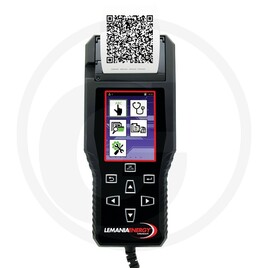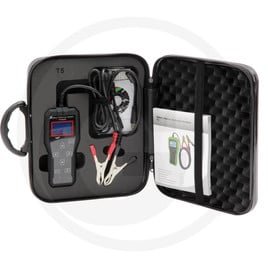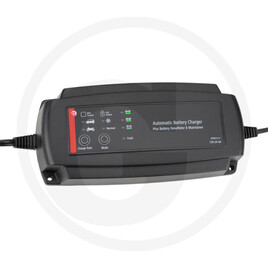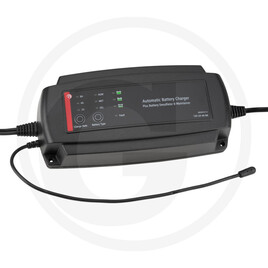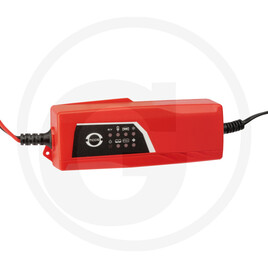
From experience: GRANIT tips for battery maintenance
Flat or defective batteries result in expensive downtimes and stress. The most common cause is insufficient charging. Yet all this can be prevented with proper battery maintenance. With our practical tips, you can give your customers the best possible advice when purchasing new batteries in the future.

How to carry out simple battery maintenance. Our top tips for your customers:
-
- Check the open-circuit voltage at regular intervals. A fully charged battery has a voltage of 12.7 V. Batteries should be recharged before the open-circuit voltage drops below 12.4 V. A simple voltage tester or multimeter is sufficient for this purpose.
- The battery surface should always be clean and dry, otherwise creeping currents may form which will further discharge the battery.
- Check the battery and cable connections for a tight fit at regular intervals and tighten if necessary.
- Cable connections should always be clean and well greased.
- External battery charging at least twice a year will prevent insufficient charging.

Recommendations

We are here for you!
Our customer and repair services, marketing support and efficient logistics solutions make us a strong partner for specialist dealers in the fields of agricultural technology, garden and forestry, construction machinery, hydraulics and industrial trucks. If you have any questions, don’t hesitate to get in touch. Give us a call on ✆ 01733 404920.

